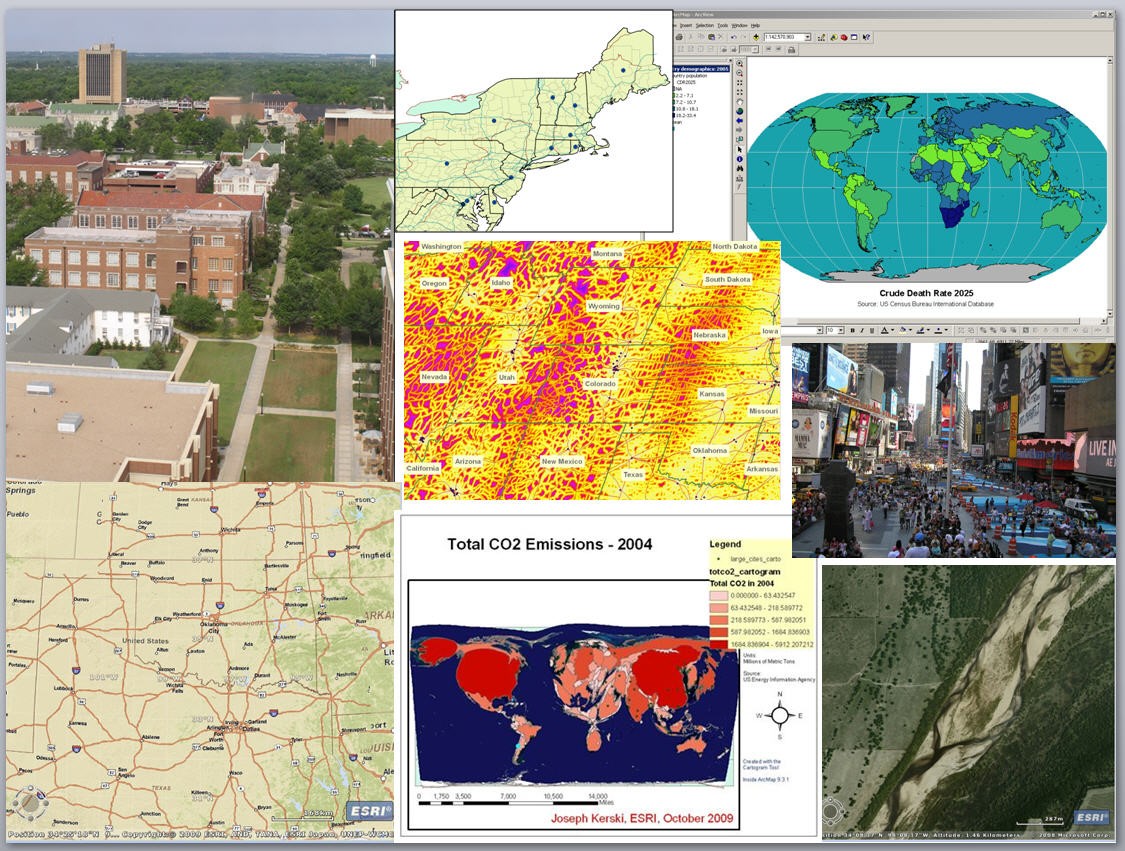- Home
- :
- All Communities
- :
- Industries
- :
- Education
- :
- Education Blog
- :
- Earth Day Connections Between GIS, Environmental E...
Earth Day Connections Between GIS, Environmental Education, and Environmental Science
- Subscribe to RSS Feed
- Mark as New
- Mark as Read
- Bookmark
- Subscribe
- Printer Friendly Page
- Report Inappropriate Content
I wrote an essay and created a video connecting GIS, environmental education, and environmental science with a goal that these resources would be useful not just on Earth Day, but far beyond. In the essay, I explore 10 linkages. The essay and video could be used with students, in a professional development workshop for educators, or with administrators at the primary, secondary, or university levels. The essay and video begin with the tenet that every environmental issue has a geographic component, and hence can be effectively analyzed using GIS and spatial thinking. The resources go on to say that not only are environmental studies enhanced by GIS, but conversely, the use of GIS is enhanced by a firm grounding in environmental studies. One of environmental studies’ central themes is examining the interaction between humans and the environment, which can be examined effectively using GIS--urbanization, biodiversity loss, coastal erosion, energy production, access to water, human health, and a host of other issues. Studying environmental issues with GIS lends relevancy and real-world contexts to these issues, from local to global scales. Teaching about sustainable practices in agriculture, urban development, ecotourism, energy, or any other field using GIS requires a grounding in core concepts in ecology and geography. Students who use GIS in tandem with environmental studies develop key critical thinking skills. Students immersed in environmental studies at all levels of education can apply geotechnologies to understand environmental issues.
Students who are well grounded in the spatial perspective through GIS are better able to, upon graduation, use data at a variety of scales, in a variety of contexts, think systematically and holistically, use quantitative and qualitative approaches to solve problems. In short, these graduates are better decision makers. GIS through environmental studies adheres to the tenet that learning is often most effective when it takes place outdoors. Fieldwork has such a long and rich history within environmental studies that it is almost like stating the obvious. However, in a world where outdoor education is often cut due to budgetary constraints, and when a frighteningly large proportion of the population has almost no connection with the outdoors, it bears emphasizing. Esri offers a variety of tools that students can use to collect and analyze field based data, including those mentioned here. Given the widespread environmental concerns faced by the modern world, it is imperative that students study and understand about these issues not only to equip them for life in the 21st Century, but to ensure that we emerge at the end of the 21st Century in a sustainable way. The document includes a resources section that details the maps, tools, web mapping applications, lessons, and other resources that can be effectively used in environmental education.

You must be a registered user to add a comment. If you've already registered, sign in. Otherwise, register and sign in.
-
Administration
38 -
Announcements
44 -
Career & Tech Ed
1 -
Curriculum-Learning Resources
178 -
Education Facilities
24 -
Events
47 -
GeoInquiries
1 -
Higher Education
518 -
Informal Education
265 -
Licensing Best Practices
46 -
National Geographic MapMaker
10 -
Pedagogy and Education Theory
187 -
Schools (K - 12)
282 -
Schools (K-12)
184 -
Spatial data
24 -
STEM
3 -
Students - Higher Education
231 -
Students - K-12 Schools
85 -
Success Stories
22 -
TeacherDesk
1 -
Tech Tips
83
- « Previous
- Next »